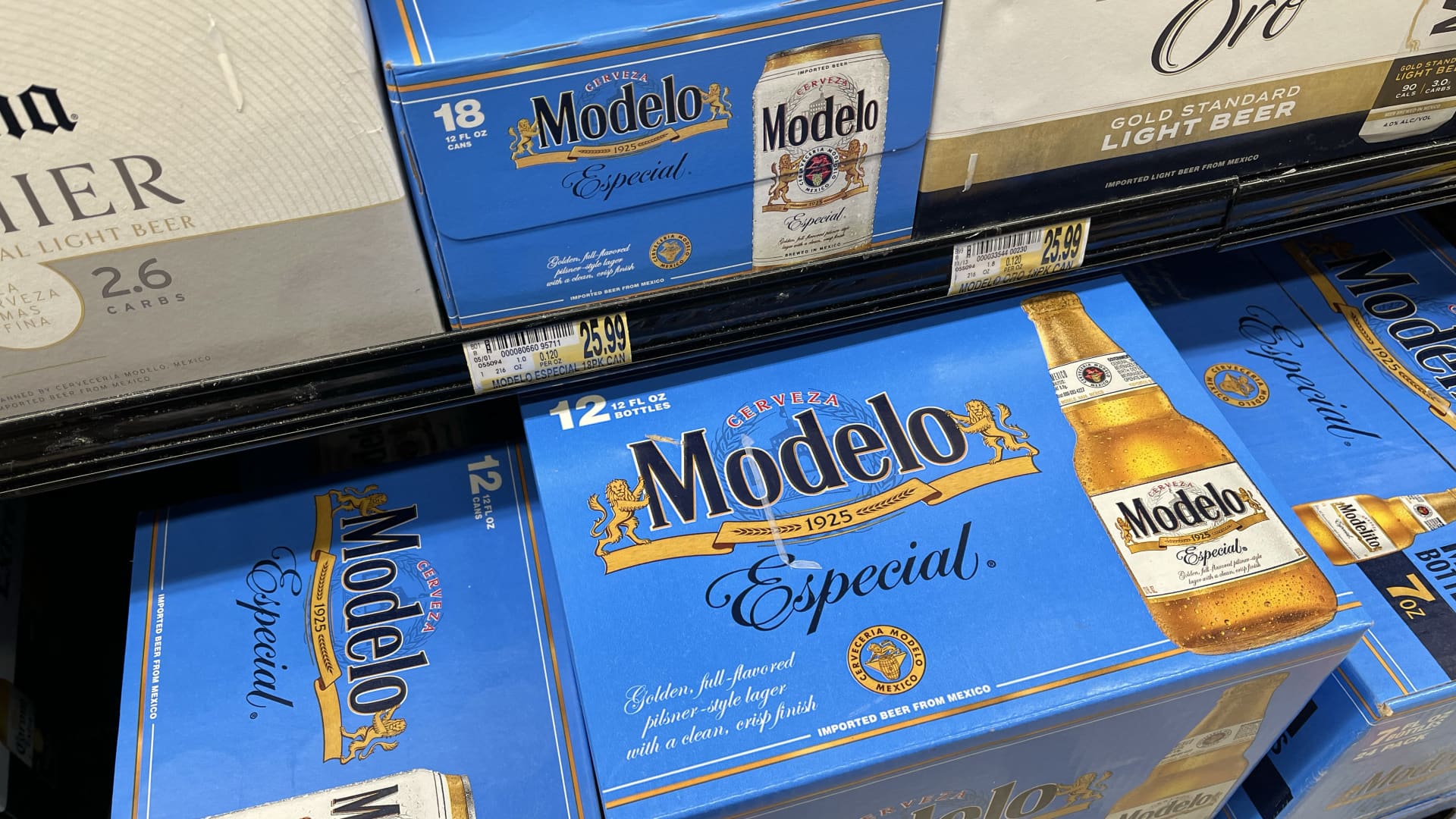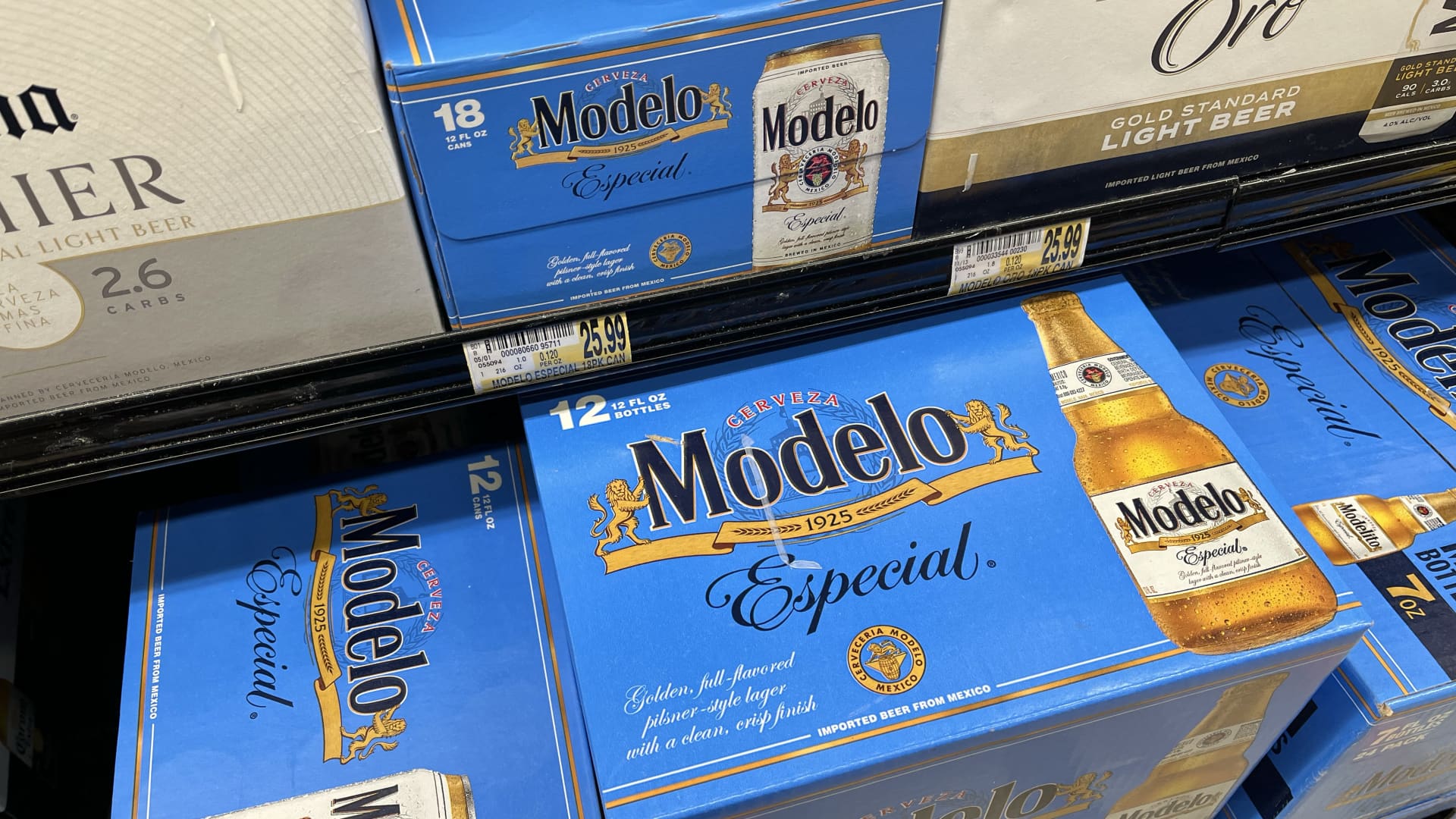Constellation Brands, the global leader behind beloved beer brands like Modelo and Corona, is currently navigating a complex and challenging business environment. The company, which has long been a dominant force in the beverage industry, is facing significant headwinds that threaten its profitability and market position. These challenges stem from a combination of external factors, including tariffs, shifting market dynamics, and evolving consumer preferences. As the company works to adapt to these pressures, its ability to maintain growth and meet financial targets will be closely watched by investors and industry observers alike.
One of the most pressing issues confronting Constellation Brands is the impact of tariffs, particularly those imposed on aluminum. Aluminum is a critical component in beverage packaging, and the increased costs associated with these tariffs have directly affected the company’s profitability. Reports indicate that these tariffs have contributed to Constellation Brands missing earnings expectations, a development that has raised concerns about the company’s financial health. The impact of aluminum tariffs is particularly significant because they directly influence the cost of goods sold, squeezing profit margins on each unit of beer produced. This financial pressure has been exacerbated by broader market uncertainties, including potential tariffs on Mexican imports, which could further disrupt the company’s supply chain and erode profitability.
The broader landscape of potential tariffs on Mexican imports adds another layer of complexity to Constellation Brands’ challenges. The company relies heavily on its Mexican beer production facilities, and any tariffs imposed on these imports would have a substantial impact on its operations. This fear of broader tariffs has contributed to significant volatility in the company’s stock price, as investors react to policy announcements and potential changes in trade relations. The uncertainty surrounding these tariffs makes financial planning and forecasting more difficult, forcing Constellation Brands to adopt a more cautious approach to its growth projections. This cautious stance is evident in the company’s recent adjustments to its sales outlook, which reflect a more conservative approach to financial targets.
Modelo Especial, one of Constellation Brands’ flagship products, is particularly vulnerable to the pressures of tariffs and shifting market dynamics. As a brand that relies heavily on the U.S. market, any increase in prices due to tariffs could impact consumer demand. The question for Constellation Brands is whether consumers will be willing to absorb these increased costs or switch to cheaper alternatives. This dilemma places the company in a delicate position, as it must balance maintaining profit margins with remaining competitive in a price-sensitive market. The company’s ability to navigate this challenge will be crucial to its long-term success, as it seeks to maintain its market share and continue growing in a competitive industry.
In response to these challenges, Constellation Brands is undertaking several strategic initiatives to mitigate the impact of tariffs and reshape its portfolio. One key area of focus is cost optimization, as the company explores various cost-cutting measures to offset the financial burden of tariffs. These measures may include streamlining operations, improving supply chain efficiency, and reducing overhead costs. Additionally, the company is carefully considering its pricing strategies, determining how much of the tariff burden to pass on to consumers without significantly impacting demand. This delicate balancing act requires a deep understanding of consumer behavior and market dynamics, as well as the ability to adapt quickly to changing conditions.
Another strategic move by Constellation Brands is the divestiture of some of its lower-cost wine brands. This decision is part of a broader effort to streamline the company’s portfolio and focus resources on higher-growth, higher-margin opportunities, particularly within the beer and premium spirits segments. By divesting these lower-margin brands, Constellation Brands aims to improve its overall financial performance and position itself for long-term growth. This strategic shift also reflects the company’s recognition of the importance of focusing on its core strengths and leveraging its most valuable assets to drive profitability.
Despite the current challenges, Constellation Brands has reiterated its forecast for fiscal year 2026, expressing confidence in its ability to achieve its financial targets. This bold statement suggests that the company believes its strategic initiatives will be effective in offsetting the negative impacts of tariffs and other challenges. However, this forecast can be viewed as a risky gamble, especially if the tariff situation worsens or consumer demand falters. Achieving this goal will require strong execution, favorable market conditions, and a bit of luck. The company’s ability to navigate these uncertainties and deliver on its promises will be a critical factor in determining its long-term success.
The challenges facing Constellation Brands also serve as a cautionary tale for the broader alcohol industry. The company’s struggles highlight the vulnerability of businesses that rely heavily on imported goods and the potential impact of trade policies on profitability. Other beer and beverage companies with similar supply chain structures may also face similar challenges in the future. This situation underscores the importance of diversifying supply chains, lobbying for favorable trade policies, and developing flexible business models that can adapt to changing economic conditions. Companies that can successfully navigate these challenges will be better positioned to thrive in an increasingly complex and competitive market.
One interesting aspect of Constellation Brands’ current situation is the involvement of Warren Buffett, one of the most respected investors in the world. Buffett’s investment in the company adds an intriguing layer to the narrative, as it suggests that he sees long-term value in Constellation Brands despite its current challenges. This move could be interpreted as a vote of confidence in the company’s brands, management team, and ability to navigate the current headwinds. It is important to note that Buffett often makes contrarian investments, buying companies that are undervalued or facing temporary difficulties. His involvement in Constellation Brands may signal that he believes the company’s current struggles are temporary and that it has the potential to rebound strongly in the future.
In conclusion, Constellation Brands is currently facing a turbulent period marked by tariff pressures, shifting market dynamics, and a challenging economic environment. While the company is taking strategic steps to mitigate these risks, the path ahead remains uncertain. The success of these initiatives will depend on a multitude of factors, including the evolution of trade policies, the resilience of consumer demand, and the effectiveness of internal cost-cutting measures. Whether the company can weather this storm and achieve its ambitious fiscal 2026 forecast remains to be seen. However, one thing is clear: Constellation Brands’ ability to adapt and innovate will be crucial to its long-term success in an increasingly complex and competitive market. As the company continues to navigate these challenges, its actions and decisions will be closely watched by investors, industry observers, and competitors alike. The coming years will be pivotal in determining whether Constellation Brands can maintain its position as a leader in the global beverage industry or whether it will be forced to make significant adjustments to its business model and strategy.












